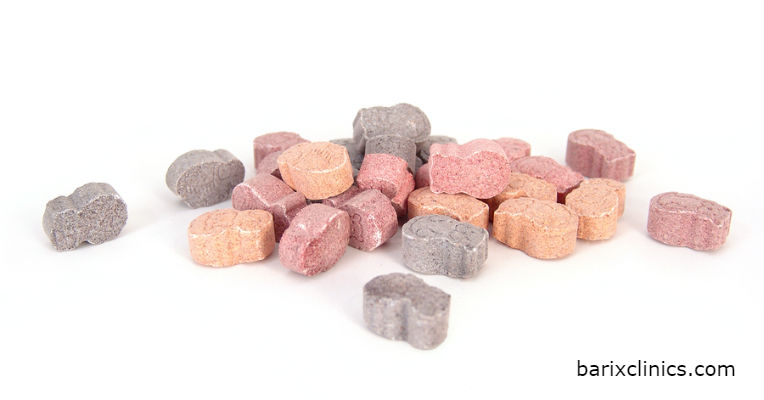Multivitamin and Mineral Supplements
Vitamins and minerals are nutrients needed in very small amounts for good health. Your body requires the same amount of each vitamin and mineral as it did before the surgery, but because you are eating so much less food and there may be decreased absorption, supplementation is needed. Chewable or liquid supplements are recommended for the first period after surgery and are a good long-term option. If you choose to switch to a pill form, be sure that it is smaller than an “M&M” in diameter. Taking complete multi vitamin and mineral supplements for life is recommended.
Individuals may have different needs for specific nutrients or preferences in the type of supplements they choose. For those reasons, we do not recommend a specific brand or supplement over another. Choose the type of supplement that meets your needs and preferences using the information below to make an informed decision.
- Keep in mind that more isn’t always better—some vitamins and minerals are toxic in large amounts.
- Use caution when using herbal supplements. There is very little regulation on these substances. Avoid “weight loss formulas” which may include stimulants or ingredients whose effectiveness has not been proven.
- Natural and synthetic vitamins are virtually identical.
- Look for the USP (United States Pharmacopoeia) mark on the bottle. The manufacturer pays for this testing. This means that the listed ingredients are indeed in the supplement and that the supplement will dissolve. It does not guarantee safety.
- % Daily Values means the same thing as % USRDA (US Recommended Daily Allowance). Labels use them interchangeably. This is the FDA’s advice on how much of the vitamin or mineral to shoot for each day.
- Check the expiration date on the bottom of the bottle.
- Store brands are usually just as good as national brands.
- Supplements can be called “High Potency” if at least 2/3 of its nutrients have 100% or more of the Daily Value (DV).
- “Advanced,” “Complete,” or “Maximum” formulas can mean anything.
Download On Track with Barix: Common Post-op Vitamin Deficiencies


